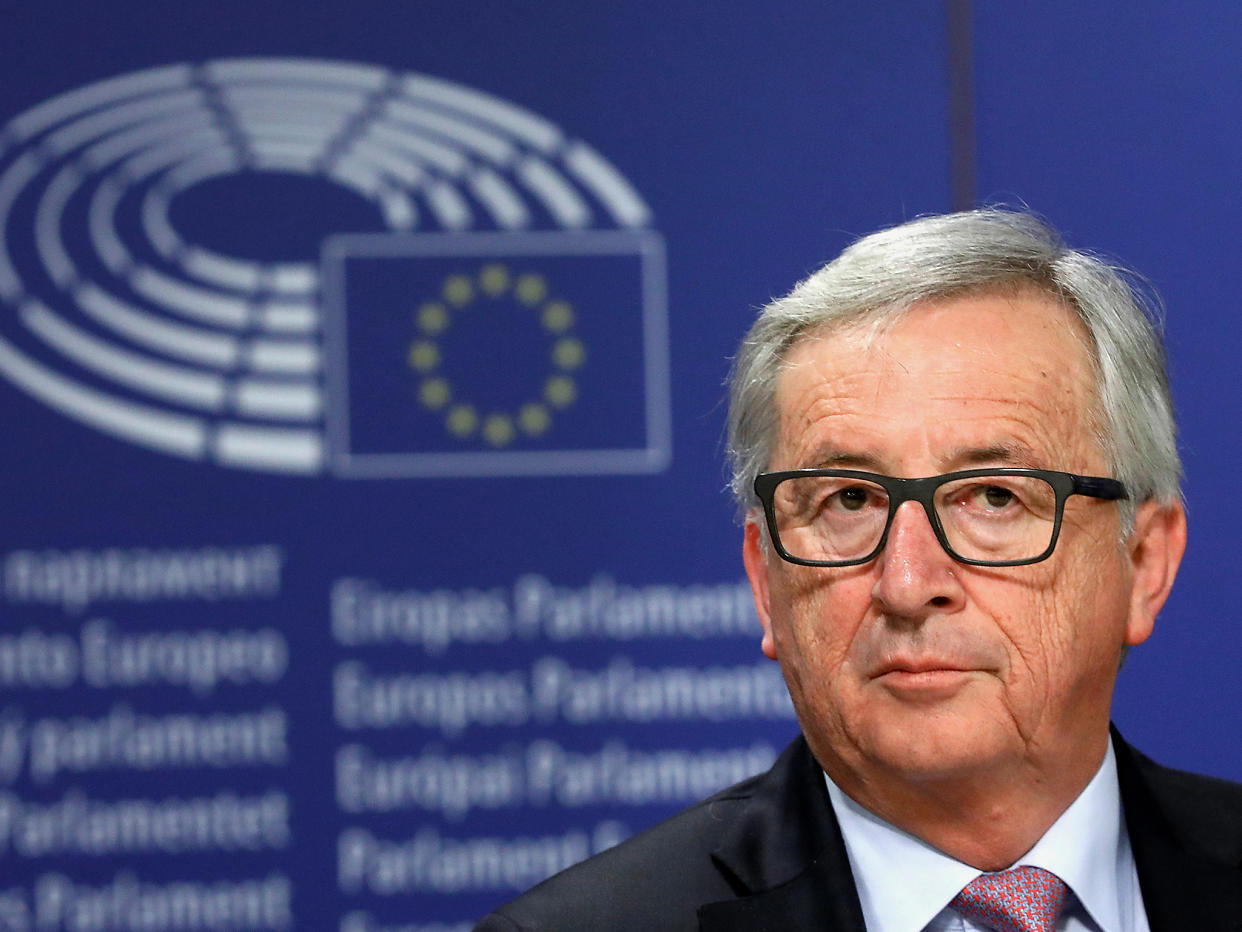Donald Trump's rhetoric could spark war in Balkans, warns EU chief Jean-Claude Juncker

Donald Trump’s anti-EU rhetoric could spark a war in the Balkans, Jean-Claude Juncker has warned.
The US President previously said Brexit would be “a great thing” for the UK and that a favourable trade deal with the US could tempt others to leave the EU block.
But President of the European Commission Mr Juncker said the European perspective in the Balkans enabled to maintain peace in the region.
Speaking to the Financial Times, Mr Juncker said he had told US Vice President Mike Pence during his visit to Brussels: “Do not invite others to leave, because if the EU collapses, you will have another war in the western Balkans.
“The only possibility for this tortured part of Europe is to have a European perspective.
“If we leave them to themselves — Bosnia and Herzegovina, Republika Srpska, Macedonia, Albania, all of these countries — we will have a war again."
During his visit, Mr Pence said he and President Trump were looking forward to working with the EU to “deepen our political and economic partnership”. But the comments were received with a pinch of salt and EU leaders have raised concerns over Mr Trump’s suspicion of Brussels.
On Friday, Mr Juncker called Brexit "a failure and a tragedy" but said the negotiations for Britain's withdrawal would be "friendly and fair".
But the EU chief also shared his concerns over the Trump administration’s intentions when it comes to the US' relationship with Russia.
“When it comes to security, Trump is pushing them more and more in the direction of European integration,” he said.
There have been concerns over the threat of Russian hacking in Europe, with three major elections in the Netherlands, France and Germany this year.
Front National leader and anti-EU candidate Marine Le Pen met with Russian President Vladimir Putin in Moscow this week.
Russian media reported Mr Putin told Ms Le Pen that the Kremlin had no intention of interfering with the election – which it has been accused of doing in the US last year.
Ms Le Pen reportedly called for closer French-Russian ties at a meeting in Russia’s parliament earlier in the day and labelled sanctions over Russia’s annexation of Crimea “counterproductive”.
On Thursday, Russian Foreign Minister Sergei Lavrov said Ms Le Pen and Mr Trump are “realists, if you want, or anti-globalists”, and not representatives of fringe or “populist” views.

 Yahoo News
Yahoo News 
